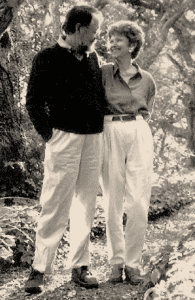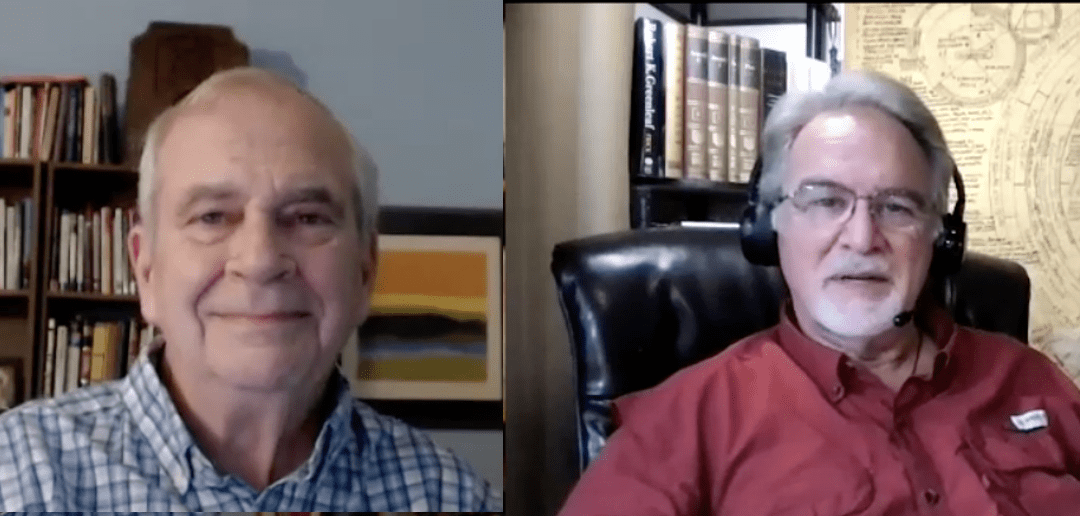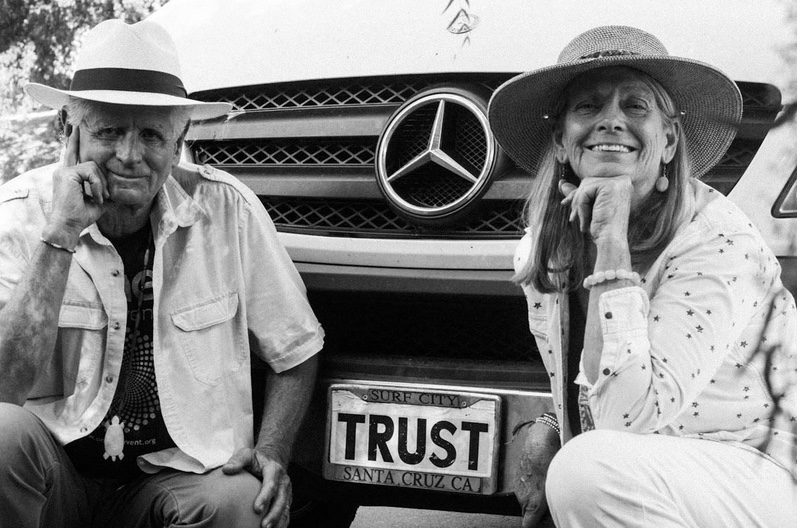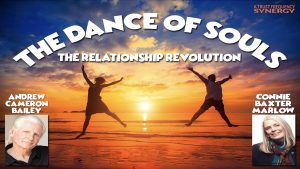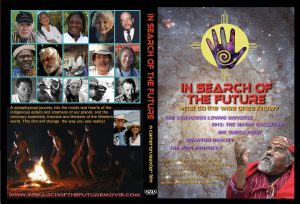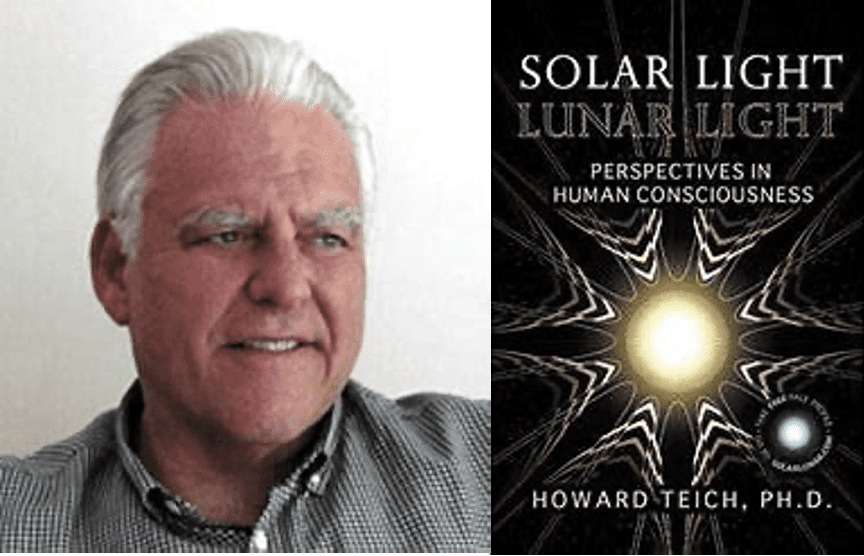
EP 114: Howard Teich on Alchemy In Today’s World
 Alchemy from a depth-psychology perspective has much to say about personal growth, metaphysics, spiritual transformation, and the individuation process. In this podcast episode, Howard Teich adds dimension and texture to this fascinating topic and touches into the relationship between Sigmund Freud and Carl Jung; comparing and contrasting their work. Alchemy is a word heard more and more often yet its meaning is mostly lost. Alchemy conjures vague mental pictures of robed men stirring large vats of bubbling water, apprentices cranking spigots to keep the fires burning. Half witch, half wizard, a definitely crazed scientist from sometime in the middle ages is the commonly held understanding. Recently the word is heard more often to indicate some kind of transformational shift that has taken place or is about to take place. The nightly news, for instance, might say casually “what’s needed now is an alchemy of change in the House and Senate.” And, on a personal basis, relates to one finding their path in life toward creating their greatest contribution to the world… their magnum opus.
Alchemy from a depth-psychology perspective has much to say about personal growth, metaphysics, spiritual transformation, and the individuation process. In this podcast episode, Howard Teich adds dimension and texture to this fascinating topic and touches into the relationship between Sigmund Freud and Carl Jung; comparing and contrasting their work. Alchemy is a word heard more and more often yet its meaning is mostly lost. Alchemy conjures vague mental pictures of robed men stirring large vats of bubbling water, apprentices cranking spigots to keep the fires burning. Half witch, half wizard, a definitely crazed scientist from sometime in the middle ages is the commonly held understanding. Recently the word is heard more often to indicate some kind of transformational shift that has taken place or is about to take place. The nightly news, for instance, might say casually “what’s needed now is an alchemy of change in the House and Senate.” And, on a personal basis, relates to one finding their path in life toward creating their greatest contribution to the world… their magnum opus.
Podcast: Play in new window | Download
Subscribe: JioSaavn | TuneIn | Anghami | RSS
Guest – Howard Teich
Creator/Host – Clay Boykin
Co-Host – Dennis Tardan – Tardan Media Network
TRANSCRIPT:
Howard Teich 00:07
They were projecting their psyche into matter. And it’s that projection. And the fact that the alchemist use nature as a metaphor system, they didn’t make a difference between spirit and matter. I’m like what started happening was science and certainly what the church and all of the philosophical traditions which had God were some something in there, and so the alchemists were looking below the surface and projected so what Jung points out is that they were finding psychological gold
Clay Boykin 00:50
Welcome to In Search of the new compassionate male. My name is Clay Boykin, I support this podcast through my coaching practice. I help people visualize and harmonize find direction and meaning or simply get unstuck. Contact me at Clay boykin.com for a free consultation. Now here’s the latest episode of In Search of the new compassionate male
Dennis Tardan 01:14
hello world it’s me Dennis and Welcome to In Search of the new compassionate male. I’m done a start on I’m co hosting this episode with the founder of the new compassionate male and in search of clay Boykin. Hey, Clay.
Clay Boykin 01:30
Hi, Dennis, what a great afternoon we have coming back with us. I think now for the third time we’ve been together several times is Howard typisch. My dear friend, thank you.
Dennis Tardan 01:42
Brilliant, brilliant Howard. What a difference you’ve made in my in my life, Howard, how I look at how I look at the world differently. Honor and lunar have come into my life how have actually had a paradigm shift and my perceptions of the world through your work. And when you’re doing honor. And I understand today that we’re you’re getting a chance to to help me especially clay has had much you’ve had a much deeper understanding and work in alchemy than i
Clay Boykin 02:13
Well, yeah. But barely scratching the surface. And thanks to Howard, I’ve got a little bit more appreciation. But yeah, you’re right.
Howard Teich 02:22
Me too. I only have a little appreciation of the depth of this imagery and this architecture that has been around really, maybe from the beginning of carrying the fire. And certainly through Egypt, and particularly in the Middle Ages, which is what young made a big Carl Jung made a big discovery of power and that I think the future of his recognition is going to come from his having discovered alchemy and the collective unconscious mind. All came from his work later on in his life in discovering alchemy.
Clay Boykin 03:04
And was alchemy. I just want to kind of set the stage. So please alchemy is is ancient by name, I mean, going back into the Egyptian times and earlier, is that correct? I mean, they actually use the term
Howard Teich 03:20
I believe so the translation,
Dennis Tardan 03:24
but how and how it came through the ages when I went when I was growing up in this when I heard the word alchemy, they basically said we’re turning lead into gold. And that was it was a process to get rich. That was that was the this was the depth of my understanding, which is only an inch deep. It’s much more complex and much more interesting than that. So could you give from me from from an ignorant perspective to how would you tell me about this so that I could understand it at a deeper level as to exactly what’s going on here?
Howard Teich 04:04
Well, I think that metaphor system came about because the alchemists were really a concept of quantum physicists, of that time trying to figure out what spirit and matter were knowing there was something in matter that they were searching for. And, and because they didn’t understand what was there. As Jung brilliantly points out, they were projecting their psyche into matter. And it’s that projection. And the fact that the alchemists used nature as a metaphor system that didn’t make a difference between spirit and matter, unlike what started happening was science and certainly with the church and all of the philosophical tradition. which had God were some something in there. And so the alchemists were looking below the surface, and projected. So what Jung points out is that they were finding psychological gold. But because they didn’t have the ego development that we now have, they didn’t realize that. And so they actually thought it was matter. And it was the pre chemistry. That is pretty much when alchemy died as a as a as a metaphor system, about 1600s, although Newton was an alchemist, and deeply has a lot of his journals, up and translated, but essentially what Jung pointed out, is that the alchemists were unconscious of their projections in the matter. And so because they didn’t have the modern ego, you get to take a look at the unconscious, the collective unconscious and their imagery.
Dennis Tardan 06:06
So how did you become interested in alchemy? How did that how did that battle fire in you?
Howard Teich 06:14
In my complicated years of when I became a psychologist, and got attracted to dreams, and I thought the the only person I really understood was young. And I had no idea what I was getting myself into. So I began to read Jung was in Jungian analysis with some of the world’s most interesting new hands in the Bay Area when I was living there. And I kept seeing that Jung at some point, I began to talk about alchemy. And I knew there was something hidden there. And, and so I began to do what I could to understand. Particularly his work, I mostly stayed with his work. And began to read the three or four volumes that he produced towards the end of his life. And I knew there was something there and it took me years and years to get the thing that you mentioned, which is the lunar masculine. That came because the alchemists were mostly men. And so most of it was the male psyche, as it turned out, and in Young’s last night, in his last great work called mysterium, can Yun Tian us the mystery of separation, and synthesis, in psychic alchemy? There were some pictures that were I thought weird. They were in his other book on alchemy that was actually from quantum physicist Wolfgang Pauli, his dreams, it was just loaded with all the classic alchemical imagery. But in that book, there were only a few. And there was a sequence that had these two men and one body with two heads. And there were three or four of them that were there. And I couldn’t figure out the weirdness of the pictures. And I could figure out the what they might mean. And because in that particular volume, they were printed in black and white. At one point after trying to understand them, I realized that the alchemy plates were in color, because they saw the colors, his transformation, energy transformation. And so I realized that in that volume, the pictures had descriptions and colors. So I took some markers on like me, I began to color them in. And at that point, I had begun to study deeply. What was this unusual part of male mythology that I had read about from Joseph Campbell’s work as original work call where the two came to their father, which was from the Navajo sand paintings, a series of sand paintings, that he read the story and told his commentary on this twin hero mythology. And I had never heard of this twin hero mythology. I’d been pretty much steeped in the hero with 1000 cases in that part of Campbell’s work. And Campbell wrote this major blog major commentary five years before He wrote here with 1000 faces. And he really didn’t return to it. But stayed with the hero myth that we’re all familiar with. But there was this weird these weird stock pictures in that last line was a young that had two men. So I’ve been studying, trying to understand what it meant that what was the difference between what I had grown up with, and most men understood about maleness and what it meant to be a man was the hero’s journey. And I had never heard of the twin arrows. And I found it. Every indigenous culture. And pre Judeo Christian cultures had twin male heroes and their mythic system, as well, as I began to notice in indigenous cultures, they also had dual females. They didn’t call them twins for some reasons. But I began, so I was very intrigued. And when I came across these pictures in that last volume on the stream and young pianists, I realized that one of them was called the hidden to be revealed. And I thought, wow, if there’s something hidden from the alchemists that they had, this must be really significant. And so I began to as I colored them in, I realized that what the change was, was that they were ended up standing on blue feet. The two legs were turned blue and the transformation I knew enough about alchemy and color transformation. I knew that that meant something. And then I had been studying all these different myths about the 20 Girls, particularly the Mayans, at that point that Navajos and I realized wow, child born of the water was a figure of the Navajo method in the Mayan story with a twin heroes who played on the ball court, which many, many of your listeners may have been down to the human hand and seen seeing Chichen Itza in some of the Mayan rooms. The twins were born in every single culture I could find almost every culture I could find as the part of the creation story and it’s only and Roman culture at Romulus kills Rebus and what we’ve lost in Western culture was one of the twins. And so I began to realize that blue now that was water, and and the Mayan story that began to really tell me, because after the twins were called down to the underworld, to meet the Lords and lords of the underworld, because they’re making too much noise, and they were bothering them down there. They went down with the arrogance of the archetypes thinking, well, we’ll just defeat them. Well, they ended up defeating them in the ballgame. But they realize they’re mortal and couldn’t live and they died. And one was born as the son of one was born as the moon. And that was the wake up call for me. Because in Union analysis, and all the most of Jung’s writing, and really not even fleshed out was actually this ancient male moon god. And he was the twin to the Sinad. And so alchemy began to be the piece that changed my life. Because up to that point, and much of the conscious, amazing still, how it’s the feminine side of men, that has talked about to be the compassionate emotional side, rather than the male boom God as that part of masculinity that was separate from the moon, goddess of the feminine. And that began to be the orientation point. So for me, Alchemy, had this extra special transformation and secret for me, so that’s that’s how I came across. Really alchemy and the value personally and emotionally to me and people that I’ve had a chance to share this with. It’s affected some people right away deeply like the two of you, and others and others just don’t relate to it, they keep attached to the, this one’s hero, because you have to let go of the ego identification of what masculinity is to really see the fullness of the organic nature of what it is to be a man that includes both these archetypes
Clay Boykin 14:50
and if I’m, if I’m hearing right, the tradition I remember Karambu talked about this, you know, the man has got develop the female within him and the females got to develop the masculine, the male within her. And that seems so plain. And for me it’s problematic because it’s gender oriented. And, and that gets to be charged because you know, me telling Laurie you need to develop the, the male within you. She’s got to take that too well, right
Howard Teich 15:31
women don’t take it as well as men do. Yeah, developing their feminine side, which is still the dominant myth.
Clay Boykin 15:40
And it’s that language, right? The essence of what you’re talking about. It gets there, but we’ve been using the wrong language and it becomes charged, which cause from my vantage point is an under current of energy that that drives polarity
Howard Teich 15:57
right on. Well, that that is that you really see that polarity, when you see Western culture develop around a solar hero myth where one twin kills the other. I haven’t come across any other culture where one twin killed the other sometimes they didn’t get along sometimes our enemies, oftentimes they were friends. But the murder of that part of the masculine, I think, is what is the big shadow Brinkley of the world right now. And certainly a men.
Clay Boykin 16:32
And so what you’re saying is that the twins, the men that are twins, the traditional or the dominant, the male is killing off the, quote, female aspect of the man. Was that what you’re saying?
Howard Teich 16:49
Only in Western culture in Western culture, right? Yeah, no, no, that that’s what we’ve killed. And that’s what I grew up with. And, you know, we all grew up with that only understanding the single hero story, rather than the twin hero story.
Dennis Tardan 17:06
What amazing and what what, what an amazing experience that is, are we the only culture are we the descendants of this culture? The only major culture that this came from? Would they have this in the, in the, in the pan, Pacific Island and Asian American cultures? Like Chinese or
Howard Teich 17:29
you have you have it there. The one I’m most familiar with is the Chinese culture, the yen and the egg. But you have it there until Confucius about 500 BCE, takes and makes the Yang female and Tao ism which preceded it. It was actually Light and Dark Sun Moon. And so Eve and it is so dominant that most people get attached to this contra gender side because of the Yin and Yang and Western culture, and people won’t let it go it is really they’ve done a great marketing job I’d love to have that marketing company that’s done it because people you know are really it’s very hard to get rid of because we’ve been basically brainwashed with it. And so you know, there’s other cultures that have two spirits but in indigenous color soon as indigenous cultures God dominated by a dominator sure most of that’s what went away because dangerous
Dennis Tardan 18:43
Howard, what is that done to us today? What are we where are we today in in our culture and how can we use alchemy and what how are you using it to where we can actually I have a an opportunity to access this what are what are the roots in?
Howard Teich 19:02
Well, I think the for me the the crossroad right now. Let me bring in one other historical thing. Young had the honor of working with a quantum physicist named Wolfgang Pauli, who was considered Einstein’s, you know, a real pure of Einstein’s and, and his volume. He used Wolfgang pole his dreams to illustrate alchemy. And so as I began to understand this, this twinning and began to scratch just really trying to scratch the surface. I came across the kind of fundamentals of what most people believe is the core of it. I’m in quantum physics, which is the concept of complementarity. Both and rather than either or. And so we are no question in an either or world, and certainly has exploded in the Balkans, again at this whole other level. And so that I’m beginning to understand and as quantum computers come on, and whatever it’s going to be this Metaverse, that is going to have a different kind of conscious experience of engagement. And it is really going to give us a chance to be willing to have the option to surrender the ego, and not use binary thinking, as a black and white way of looking at the world. And nature. Because the radicalness of the cost of binary thinking, is probably the thing that makes it almost impossible for there to be a transformation of almost everything. So my practice is to try to look at trying to look at both and rather than either or. And it’s it’s a conscious habit that one has to develop. And I think that without going into all of the alchemy, about which most people are, it’s kind of the core of quantum consciousness. And all of a sudden, I’m getting all these fires about quantum this and quantum that workshops here and there. And I’m not sure about, you know, I’ve been to some of them and
Dennis Tardan 21:52
buzz word, Howard. We’ve, we’ve adopted it, and we’re and we’re getting into it, and let’s, let’s go ahead and yeah,
Howard Teich 22:02
but they’re kind of this, it’s so simple at one level, to think of both and rather than either when you hear black and white thinking,
Dennis Tardan 22:11
exactly. But you know, I think about it, I think about it in in a in a continuum instead of it by one or zero, it is somewhere along the continuum between one and zero. And as we as I move along to the to the one which is at one meant, or atonement, or being, I am somewhere along this continuum, absolute darkness to absolute light. And as I move along this continuum, I can move a tiny gradient towards one. Or if I get into fear, or lack or that kind of thing. Yeah, I’m a little graduating toward the darker part. But I try to look at it along the continuum. Is that a? Is that a way of framing it?
Howard Teich 22:59
Totally? And I would say, Yeah, because we are a continuum of energy. And we’re in these cellular forms, that are a manifestation of this quantum energy. Yes, for from the cosmos. And if I could say to your listeners, I would say that you two are the two people that my first conversation with you where we got into this, both and I have not had that experience very often. So whatever it is that you two are contributing, and these podcasts and and your other work, I would really highly recommend that people keep understanding what both of you are doing, because you’re carrying it on at a architectural level, not just at an ego level.
Dennis Tardan 23:52
Thank you. lovely thing to hear. Yeah,
Howard Teich 23:55
that’s true.
Clay Boykin 23:57
You know, what comes to mind, I mean, this this whole search, you know, this search for the compassionate male is we’re picking up knowledge and wisdom for everybody that we talked about. And I said, Well, I heard this here, Howard, how does that fit for you? And so it’s a snowball effect of knowledge and information. And I know at times I’m holding it all. I don’t, I don’t understand it. But I feel like there’s something there. There’s an energy there and it keeps keeps growing. Yep. And for me to sit here and say, Well, I can explain it all. There’s no way but I can I can I don’t have the words to express what I’m feeling with the momentum that we’ve got happening here. I appreciate
Howard Teich 24:47
the wisdom of not saying all or nothing. What is the difference? The if you have a chance, you know, just at the most esoteric level, many A lot of the esoteric systems end up with a sun and a moon i. And since they’re connected to the left brain and the right brain, and people are more used to talking about the left brain being a linguistic tool, and the right brain gave me the emotional tool, it takes complementarity to do both. And, and that’s really the to me, the biggest thing that I think I, you know, we’ll get make a breakthrough here and people’s thinking, to get out of the subject object metaphor system. Yeah. And to move into reflective consciousness, not projections.
Clay Boykin 25:47
You know, one of the things I agree with that one of the things that, that I’ve been able to verbalize it is this whole notion of the, the plurality of, you know, absolutes, you know, this or this, and there’s anything in between is compromise. Well, no, this to get from this point to this point, there’s infinite points in between, which to me is now looking like infinite possibilities, right? Not compromise where nobody gets what they really wanted, no, has infinite possibilities of what that space in between is, for me, at least,
Howard Teich 26:25
yeah, no, I think that compromises when the ego is still attached, it’s just going to the other end, and hasn’t really surrendered. It’s black and white point of view is kind of in the back of the brain. So you know, as somebody is trying to expand, but unless you’re going to surrender the ego attachment to binary thinking, you’re gonna be caught in a binary world. And then see in a new way with fresh eyes, since it’s our the information that we’re making up anyway, and to get out of the projection into the energy flow and be informed by the interior life. As a reflection, rather than an object, that’s an art. And as that’s the, to me the modern art of alchemy.
Clay Boykin 27:19
I just saw a visualization, because we’re talking about, you know, this or this. And this, this ego keeps us in into a compromised conversation. And the release of the ego allows us both to lift up higher, and lift our sights higher and aim at something higher than either one
Howard Teich 27:38
and expanded ego. Because ego, that’s a child of the unconscious, but the ego thinks it is the unconscious.
Clay Boykin 27:51
Damn ego
Dennis Tardan 27:52
over identification.
Howard Teich 27:54
It’s really, you know, you can look at indigenous wisdom built around that twins story. Now twins, as a metaphor of complementarity is what you know, I think people are searching for and getting those people who don’t want to think in binary terms. And there’s most you know, plenty of people are never, certainly in our lifetime. I don’t think they’re gonna give up the binary request. But it’s the healthy ego that’s built with its Remember, it’s where it came from, rather than think it is it. That’s what we’re talking about the immune and ego to power the you need a healthy ego, hopefully, and complementarity.
Dennis Tardan 28:40
I love that idea, Howard, because I always thought of that I always thought of that when I would miss read a lot of this the a lot of the text and psychological texts that you know that we that our goal is to kill the ego. The ego is somehow evil in that and I thought, well, now, I have this physical body and I can eat cake and feed it all kinds of empty calories and I will damage leading this body. Alright, well, couldn’t ego be the same thing? would there not be new trick nutritive ways of making healthy ego?
Howard Teich 29:17
Yeah, because the ego is part of the body. It’s an emergent phenomena. Yeah. You know, some people think the modern ego happened, you know, 2000 1500 years ago, as opposed to collective ego, and the transition that was going on at that time, mostly into monotheism. But that came along with it was this thing that I think is now called the ego that if it still remembers that it’s built on nature, not an object is how the subject object might headset
Dennis Tardan 30:00
exactly, you inside view inside yourself. I’m because I’ve only done this. I’ve only had this a few times and sometimes in meditations a couple of times in one night when I was in some kind of a psychedelic experience, to read to understand that my ego and who I really am are two different.
Howard Teich 30:22
I’d say they’re complementary,
Dennis Tardan 30:24
yes, they are complementary, but they are but that but I, when it’s when I over identify with the self, or the self Exactly, right.
Howard Teich 30:35
This was if I could bring in the word self, which, and mandola what I Jung’s major things was trying to figure this out. And I would encourage any listener that really is interested in alchemy to read his auto bio, his biography at the end, memories, dreams, reflections, because he goes to a couple of chapters, he really goes into the importance of alchemy,
Dennis Tardan 31:03
is it understandable to people who do not have the kind of depth and the study that you that you have, would we
Howard Teich 31:10
is it that’s what, that’s where that is his most successful writing. The rest of his writing is almost, you got to really be willing to do the work. But no, that was written when he was 80. And it’s review of his life. And you might not be people might not be interested in all the different parts of it. But to really see, other guys, where this came from was an honest struggle, trying to understand the unconscious, and came across, after he really had this tragedy with Freud, were they couldn’t get along, because they had a different definition of the unconscious. And boy thought it was sexually driven. And you thought it was something in addition to sex, and they had a big breakthrough, and breakout. And I kind of finished by 1913. And your work went into retreat. And he spent five years doing an amazing amount of self discovery. And in that he was quite the artist, and talented. And as it turned out, the poor five years into it, he began to draw, and he began to draw my dollars. And I wanted to bring this in for people that know Clay and clay, his work. Yes, and that’s clays new book, which I have not seen the cover up. And that beautiful color blue, hopefully, is seen as the lunar masculine for men and a lunar feminine for women. And, you know, but that was his big breakthrough. And I want to tie this into alchemy, because he realized in about 1918, that there was a center and he called it the self. And it was an archetype. And at that point, he had withdrawn from the world give up his professorship in Zurich, and, and had pretty much stopped writing and then from then on and till, let me just kind of jump forward to 1927 ish. Were Richard Wilhelm, the man who wrote the chain, or translated it, that a lot of people are familiar with seminal book called The Secret of the golden flower. And it was an ancient Taoist alchemical text. And he saw a mandala in there that made him realize that the mandala was the self and that alchemy was the through line because as a scientist, he didn’t he wanted to find out if there was a new there, if this was going to be accurate that what most of us, many of us now think is the way the world works on the collective unconscious. And many of these amazing discoveries a new him did. It was his discovery of mandalas. That was the beginning of the center of himself. And that was, and he stopped doing mandalas in 1927 28, when that book was published, and that’s when he really went in and collected these books in Europe, about alchemy, which were in Latin and Greek, and many other languages. So the mandala that clay has in place work is really your centering device that that you’ve discovered is the art A type of wholeness, that’s transpersonal. And so deep. And so I wanted to tie the self, and the mandalas in for your listeners. So I’m sure some are familiar with that part of your work.
Clay Boykin 35:17
I so appreciate you saying that Howard. You know, for years, I was drawing this thing. And it had four quadrants to it. And, and I, it was just innate, something was happening. And I was using it in business for 20 years. And I would put this together and what I’ve since learned is the term quaternity. I’d have the pieces. And then I put all this stuff together, trying to put the puzzle together. And once I put it all into context, I had this big sigh, like, Oh, there’s the answer. And that’s what I saw. When somebody showed me the Joseph Campbell, quote, you know, it’s about taking and putting all the scattered aspects of one life, one’s life in in order with the universe. Oh, that’s the big sigh. That’s what I’ve been doing. And so now, oh, now I’m starting to put language to it. And then every time you and I talked our aside for costing me a fortune and great books of whichever one I’ve appreciated, you keep pointing me to new, you’ve put this bread trail out in front of me is helped me really understand more about the essence of what the power of a mandala is. And I’m still feel like I’m just scratching this
Howard Teich 36:33
Yeah, well, I think we all are trying to figure out ourselves, and what that means. And this era.
Dennis Tardan 36:42
It feels applicable because it feels like that what we’re, that what we’re experiencing now is a change in consciousness. I mean, we’re understanding with with with, with, I know that what looks, it appears to me is everything is outside of here. But it all happens in here. I mean, the the light comes into my eyes and all that and it translated to a picture out there. But it’s all happening in here, right? Well as we begin to get into virtual reality, and we begin to to marry the marry what’s going on, inside the brain with, with all the different kinds of inputs, it seems like that we’re going to be we’re going to be shifting the consciousness and what’s going to be what’s going to be looking at in this metaverse.
Howard Teich 37:35
That’s a deeper hope. Along with that is going to be a shift out of binary thinking.
Dennis Tardan 37:44
And that’s where that’s where we’re going.
Howard Teich 37:47
Yep. If I could say just one of the I find interesting thing about alchemy, and I think, you know, all of us, and I’m sure most of your listeners have learned to work on themselves in some way to keep expanding the consciousness. And the alchemist essentially had four colors, because colors were important to them. But they had four basic colors, that can summarize a way to work on yourself. It was black, white, red, and gold. And there were some other colors like blue and other colors were part of it. But their main contribution was black represented our shadow, and in our shadow to admit our shadows, which if in any relationship, it’s easy, if you ask the other. And they’re honest with you, they’ll tell your shadow, whether they want to hear it or not. And then you have to go through the whitening stage, which is the purification of the shadow. And then once you purify out the shadow, and I think this is what your comments made me want to share this that you have to go through a reading stage where you bring back in the energy that was entangled in the shadow to that archetype. And by living that either in a binary, non binary way, in a complementary way, you have a chance to do this deeper alchemy that you’ve discovered almost automatically clay in your mandala work gets you there and you have a way to do it for all of us. And I know you because I know how hard you work on yourselves both of you. It is that holding that space and complementarity around all the opposites that want to reduce us and are not friendly to this other mindset. And when The beauty of what’s going on technologically is that when you get immersed, and some of the new technology, it just happens. You don’t have a choice to if you’re going to experience it, to get past it as whether afterwards you then retain it. And birth it as a conscious part of your mindset. So that the ego and a deeper self are working together in a complimentary way.
Clay Boykin 40:29
That’s not an intellectual event. It this has I’m reading it, I mean, it’s almost a visceral experience that eventually, for me, it becomes conscious and I can say, oh, that’s what was happening. Yeah, I can’t think my way into that space.
Howard Teich 40:53
No, one thing as if thing about consciousness, as much as you want to have the intention. And so Oh, most only after it happens that you become aware that you will become conscious of something before it disappears.
Dennis Tardan 41:10
Yeah. Yeah. That’s, that’s, I find it interesting to know, to imagine all the things that I’m going to be learning that I can keep myself open. So when I do come upon them, I actually experience them rather than walking past right on, right on, you know, and that’s really my prayer, keep me open, keep me open universe, to what lessons are here so that I can both learn them and experience them and share them and share their grace?
Clay Boykin 41:50
Let me take just one piece of the alchemical process. There was this term that I’ve heard, I’ve heard, and I’ve actually embedded it up into my mandala right here over here somewhere called the philosopher’s stone. And for the life of me, I, I knew that it was something but I couldn’t figure out what that something really was, until I began to tell you pointed me into the alchemical process. But even now, I have trouble. It’s nice to well, what’s the Philosopher’s Stone? Can you?
Howard Teich 42:25
Well, I take a minor stab at it, that it’s the elixir. It’s the part of all of us that are seeking health. And that was the main metaphor, one of the main metaphors for the alchemist was searching for the phosphor stone, which oftentimes was imaged. And the last, there’s seven different stages of alchemy, but I’ll just refer to the last one, which is called the sacred marriage. And it’s a sacred marriage oftentimes was imaged as the sun and the moon. And so I keep exploring that complementarity of the sun and the moon, taking the gender labels off, and dealing with the energy. And finding that is the way that I try to image and articulate the elixir, the Philosopher’s Stone, the healing stone, but they were they were after healings, they were trying to end something and discover something and it was that piece that I have seen imaged as the sun and the moon and the complementarity. And in many of the alchemical pictures, because they were immersed in nature, they didn’t have the magnitude of the subject object language, so poor way, and they were trying to figure something out about matter. When we you know, accepted matter as an object and try to accumulate it, rather than see it on the continual evolution that you pointed out it really is. synergy that isn’t fixed unless the ego fixes it. Yeah. made into
Dennis Tardan 44:20
an object. And I find it fascinating when I when I when I read the Financial Times and I you see people with billions of dollars and I go okay, well, what would be enough I realized it’s it must be playing a game It must be playing the game you know, and that there’s always the game to win more. But what to put in to to what when do we ask ourselves that question, to what end? What are we doing here on the planet? What is my what is my my? Why am I here? Are
Howard Teich 45:00
we that’s the, that’s what I have. Spirit of summarizes the plus for stone is his quantum energy of the wave and the particle and trying to keep it alive and minimally make it into matter attitudes. Emotions that gets stuck.
Clay Boykin 45:21
Okay, the shadow. Okay, so let me pick up on that you said shadow. And you’ve taught me the term prima materia. And in some ways does that equate?
Howard Teich 45:39
That’s, that’s what I think, again discovered is that the prima materia that the alchemist were working with was their own shadow. Okay, that into matter. And that the thing about the alchemist said this, then the symbolism, which is fascinating to me, is crucial for hundreds, if not 1000s A years as an evolution of how we see matter. And so now I believe we’re in the quantum level of not make up realizing there’s something invisible, that’s matter as not just visible, and it’s seeing the visible and the invisible, that makes that complementarity rather than getting one sided. So it’s really in our personal shadow in our collective shadow, that keeps the transformation from going in a way that just keeps getting acted out and projection and making the other the object that’s the enemy. Rather than admitting that part of ourselves. And that’s what, you know, unconsciously the alchemists were doing was getting their ego another way. You know, they had to be fairly wealthy to afford all that equipment. They were hated by the church. And so many of you are philosophers and doctors really looking for healings. And I think all of us no matter who we are, at what’s part of that continuum, we are we are looking for healings and having a longer, more vital for life.
Clay Boykin 47:23
I guess they were, I guess, at some point, they were beginning to equate. I guess, that part of healing physically is the mental health healing?
Howard Teich 47:33
Well, I’d say that’s where we’re at in young came in. Okay. And that’s what they were able to do and picking up this thing that’s called the unconscious. Is that that is I call the unconscious the self. Because, you know, and the ego relationship to the unconscious, is what flows and works. When you have too much ego, or too much unconscious, you’re in trouble. And that’s hard to find. The right dance of particular configuration.
Clay Boykin 48:18
Wow, the hard ego driving the unconscious. There’s a formula for disaster, right?
Dennis Tardan 48:25
It’s been in my life. Yeah.
Clay Boykin 48:27
For all of us. Yeah. Oh, not me.
Dennis Tardan 48:30
All right. All right. plays on that. Car. No, I wrote. How are you? And I will, you and I will sit down together? We’ll have a beer together. And then you can you’re going to send on your
Clay Boykin 48:46
right, till the wax melts off my wings.
Dennis Tardan 48:52
Oh, Howard, I want to thank you so much for today, because I love the opportunity to learn more in this discuss, what are what are the, because I love the idea of that radio waves existed before the invention of the radio. You know, it wasn’t just we began to use them. And we begin to sensitize myself to the power of intuition to be able to see I’m you know, that’s where, where Einstein and so many of the fine men and so many they use their intuition on on a regular basis that this is where the this is part of what we’re doing. And as we’re building that muscle, and you’re such a proponent and a practitioner, in developing the intuition and using it that you have used it so much in your life and it’s one of the reasons why I’m so inspired every time I get around to do that, because that’s something I’m working to develop into practice more in my life.
49:56
I feel honored to know both of you
Dennis Tardan 50:00
CLAY thank you for this opportunity today to be on in search of the new compassionate male and Howard, thank you. Thank you again for this, this chance to have another journey and may we continue these conversations if we learn, learn more I want to I want to explore in the next time we talk the, the concept of the collapsing of the future as it collapses as we observe it. And so one of the reasons why it’s so careful, I need to be careful to what I observe because what I observe will actually be part of my reality and so I want to talk about that more and with you and with you clay and anything closing clay that you want to share.
Clay Boykin 50:45
As always, I come away with a bit more knowledge when Howard and I talk
Dennis Tardan 50:52
and more questions than when I walked in. I have always have more questions on the other side of a conversation with our tastes than
Clay Boykin 51:01
in my my Amazon book bill continues to get a little bit bigger.
Dennis Tardan 51:09
If Jeff Bezos goes oh
Clay Boykin 51:19
I just love it when Howard is with us. It always expands my thinking and I come away on oh boy so much more to study and so much not
Dennis Tardan 51:28
just my thinking too. It’s my heart. Yeah. Because Because Howard You’re such you’re such a deeply heartful man and have have brought in your love and your love consciousness and that has that for me that my the way I interpret the word is is so strong and and your intellect of course, but but the combination of those that you bring to us is is extraordinary. Thank you. Thank you for the above. All right, thank you, Clay. And thank you everyone who has been here for this podcast and we look forward to seeing you on future podcast in search of the new compassionate. Well done, Howard. Did you hold that right there? Hold it
Clay Boykin 52:25
thanks. Thank you. Check out the latest episode of In Search of the new compassionate mail on your favorite podcast Station.
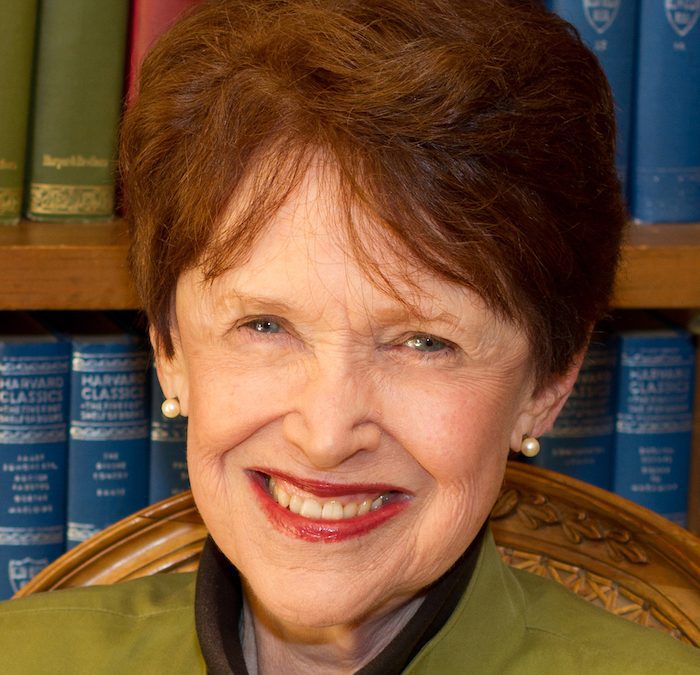
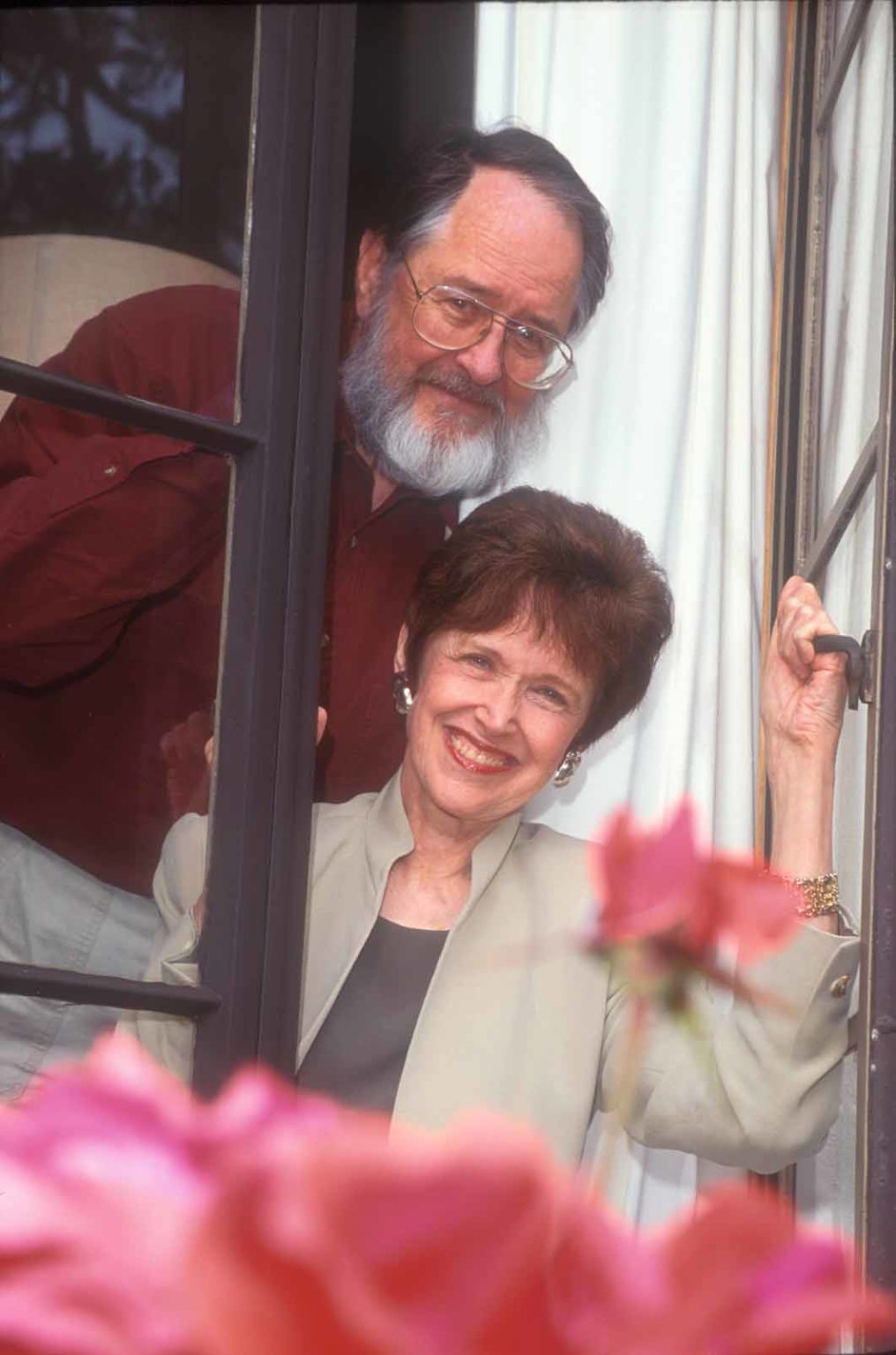 Riane Eisler is a social systems scientist, cultural historian, futurist, and attorney whose research, writing, and speaking has transformed the lives of people worldwide. Her newest work,
Riane Eisler is a social systems scientist, cultural historian, futurist, and attorney whose research, writing, and speaking has transformed the lives of people worldwide. Her newest work, 
